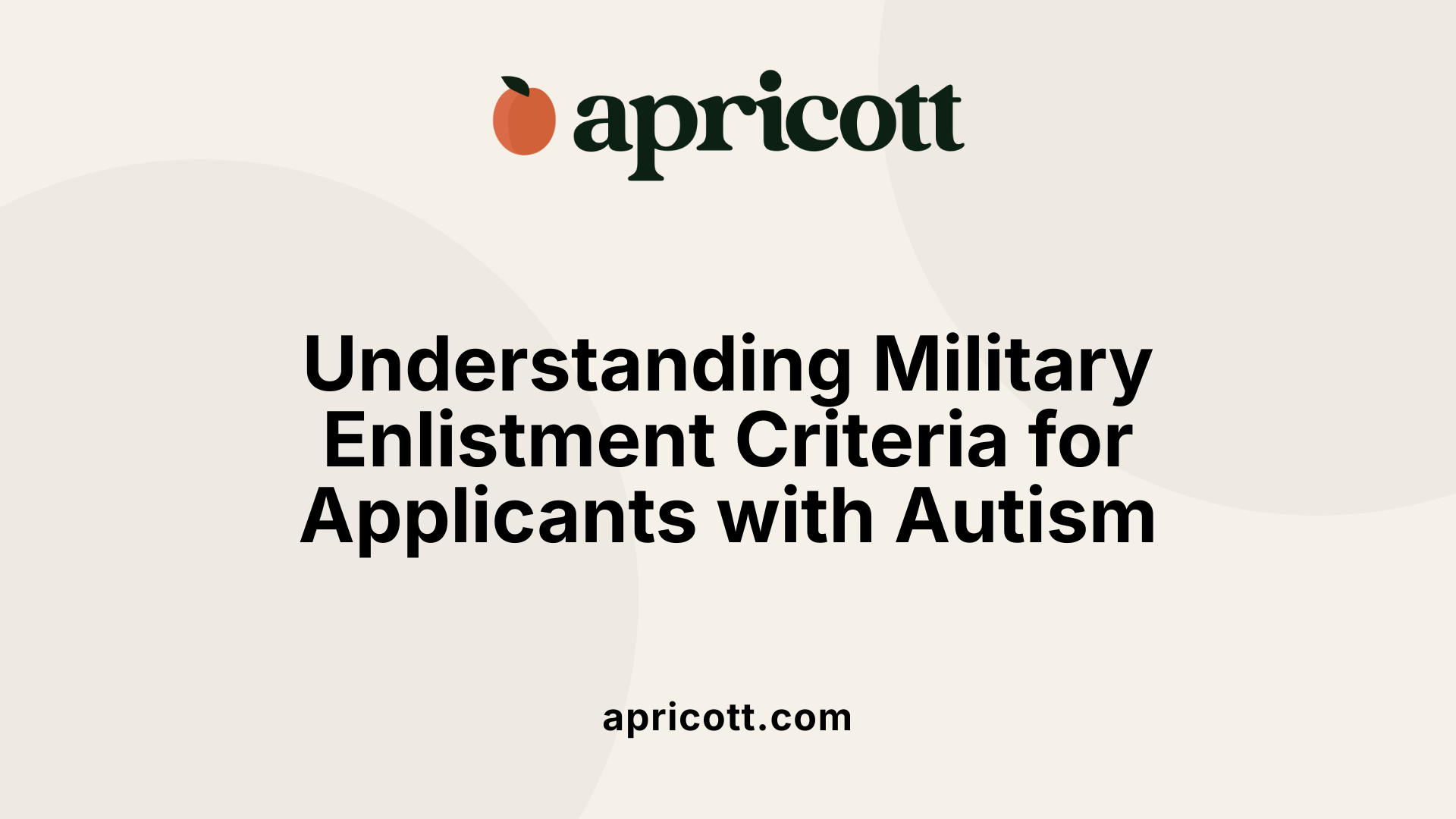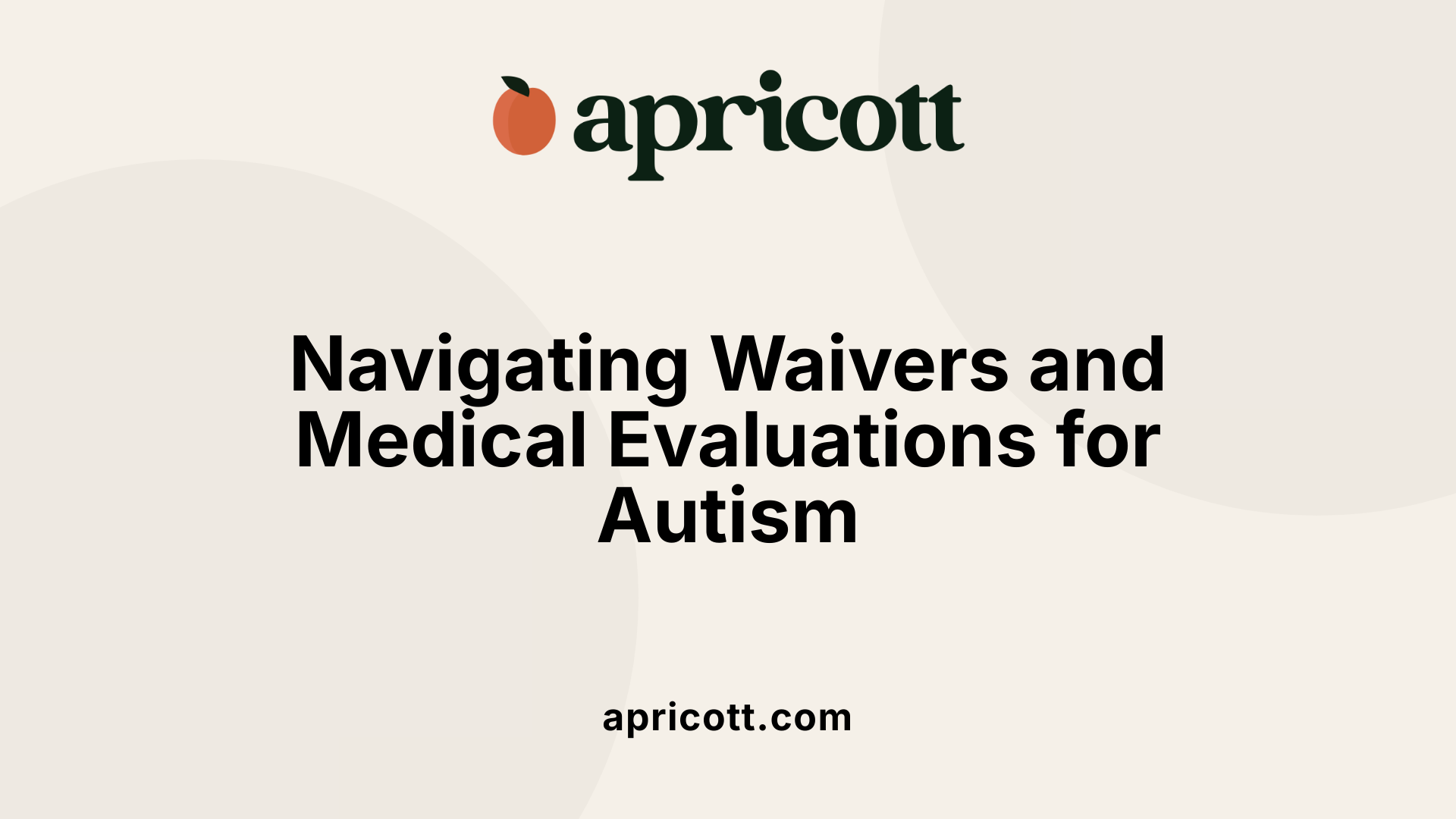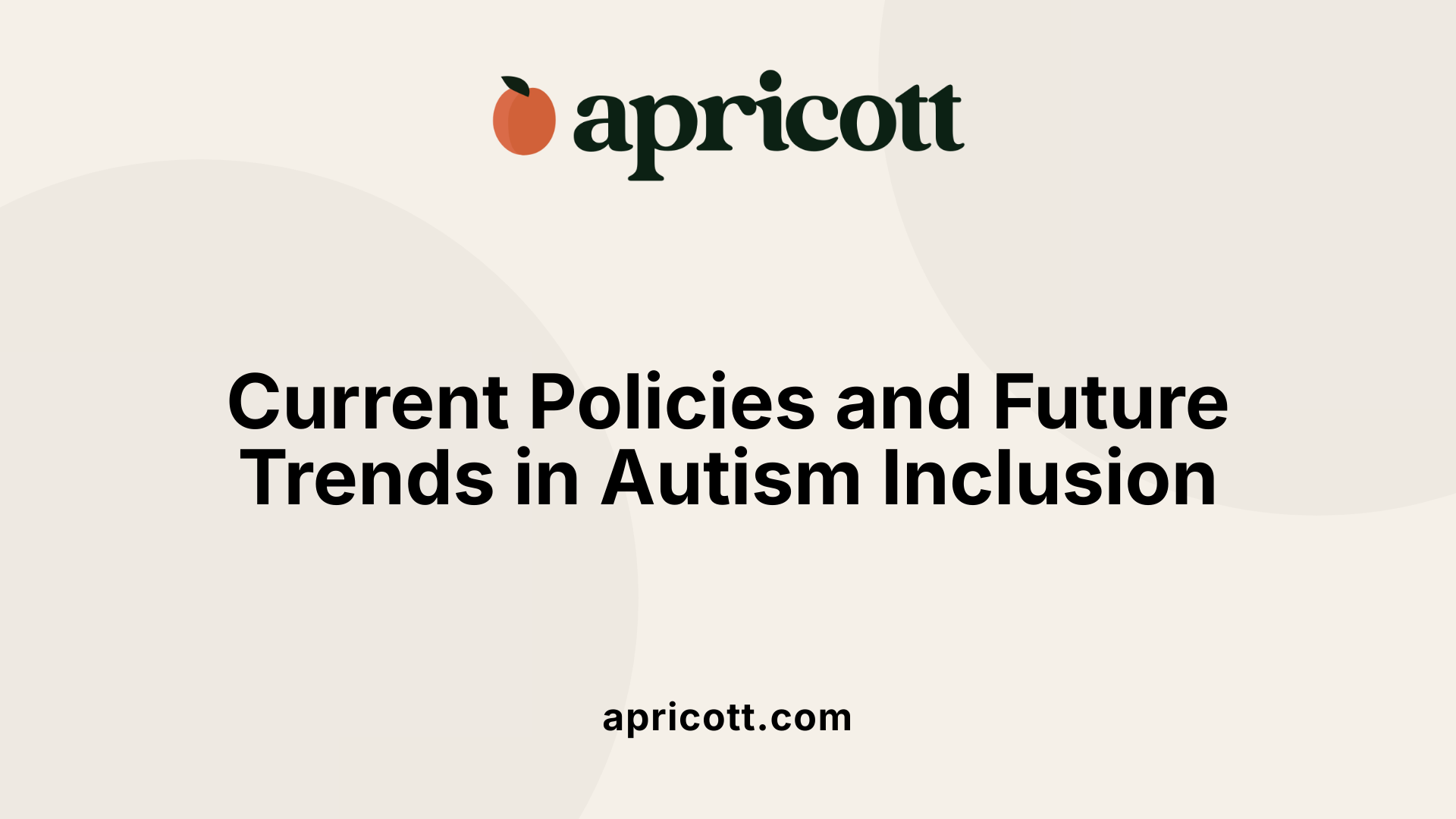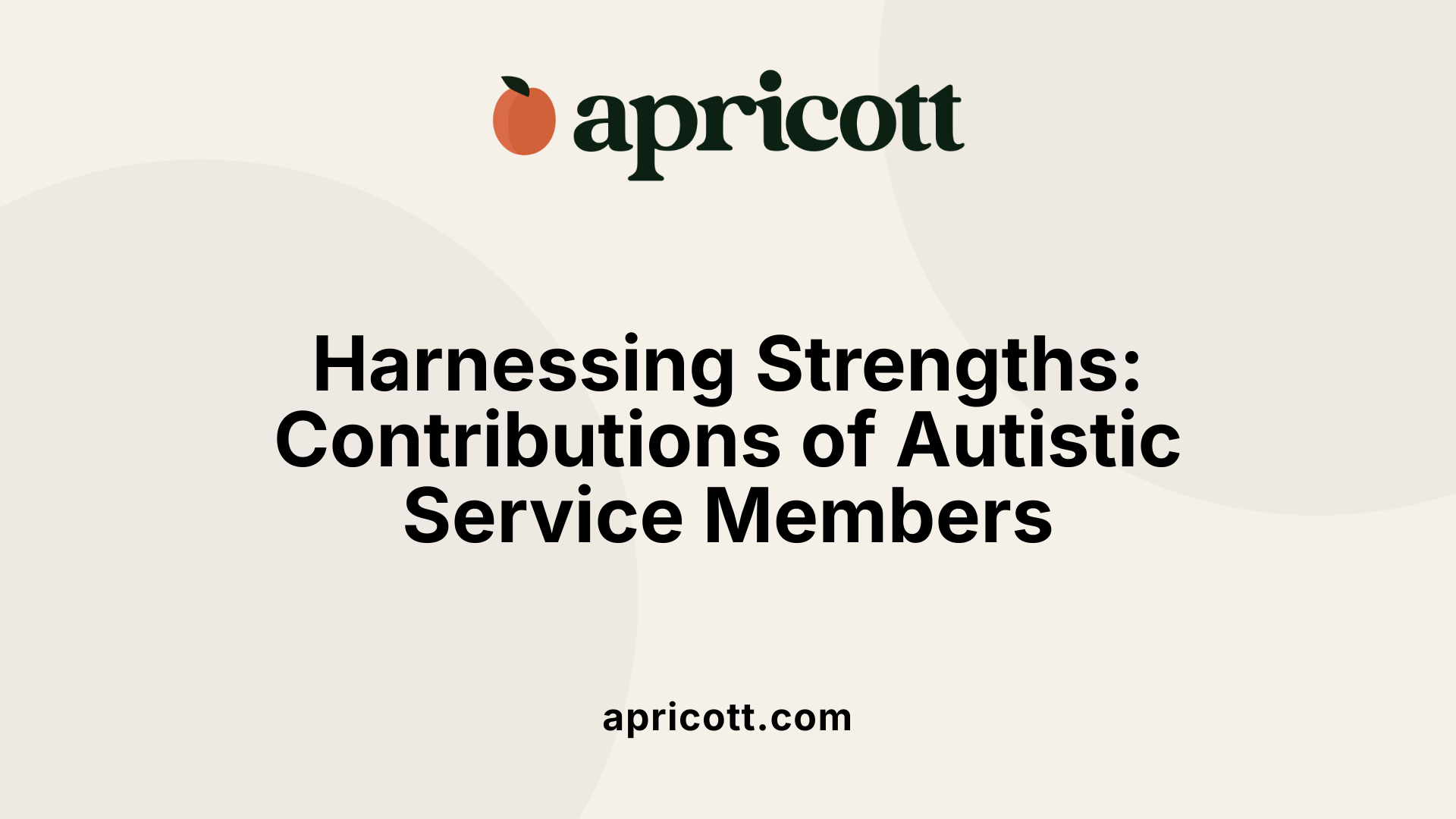December 2, 2025
Breaking Barriers: Autism and Military Service
The question of whether individuals with autism can serve in the military is complex, involving medical, policy, and personal evaluations. As awareness of neurodiversity increases, the military's approach to including autistic individuals evolves, balancing operational readiness with inclusivity. This article explores eligibility criteria, medical considerations, policies, challenges, accommodations, and the valuable contributions of autistic personnel in the armed forces.

Enlisting in the military with an autism spectrum disorder (ASD) depends heavily on the specific branch's policies and the severity of the condition. Generally, having a diagnosis of autism can be a barrier; however, this is not an absolute disqualifier.
Most branches prioritize functional ability, meaning they look at how autism affects daily life and military duties. Applicants with mild autism or high-functioning autism, such as Asperger's syndrome, are more likely to gain approval, especially if their symptoms are well-managed and do not interfere with service requirements.
In contrast, individuals diagnosed with more severe forms of autism, like pervasive developmental disorder (PDD), often face stricter assessments. In these cases, waivers are typically required, and approval depends on thorough medical evaluations showing that the applicant can perform necessary tasks.
Family support programs also play a role in supporting service members. For example, the Exceptional Family Member Program (EFMP) helps families access resources and accommodations, while Tricare offers specialized autism services. These programs provide vital support but do not automatically qualify an individual for military service.
Ultimately, each applicant is evaluated on a case-by-case basis. The process involves medical, behavioral, and capability assessments to ensure the individual is fit for service. Policies are subject to change, and staying informed through official military resources or detailed reviews like the search term "military enlistment criteria autism" is recommended.

Many individuals with autism who seek to enlist in the military must have their condition carefully evaluated. Generally, those with high-functioning autism or Asperger's syndrome—where symptoms are less severe—are more likely to qualify for waivers. The military often considers whether the autism is well-managed, with minimal sensory, cognitive, or behavioral challenges that could hinder performance.
Autism that is mild and stable, with effective support and accommodations, increases the chances of military acceptance. For example, individuals who do not experience extreme sensory overload, have good organizational skills, and require minimal ongoing treatment are viewed more favorably.
Each service branch conducts a thorough assessment to determine if an applicant with autism can meet military standards. This evaluation includes reviewing medical history, current symptoms, functioning in daily activities, and potential support needs.
Specialized medical evaluations are often required, especially when autism is present with other conditions such as anxiety or ADHD. The goal is to ensure that the applicant can perform military duties safely and effectively. Waivers are more likely if the applicant can demonstrate stability and the ability to adapt to rigorous environments.
The military looks at various factors, including:
For example, accommodations like noise-canceling headphones or specialized lighting might be considered to support the individual. Assessors also examine behavioral history and capacity to handle stress.
| Autism Severity | Likelihood of Enlistment Approval | Typical Accommodations or Considerations | Additional Notes |
|---|---|---|---|
| Mild / High-functioning | Higher | Noise-canceling devices, social skills training | Usually eligible with evaluation |
| Moderate | Moderate | Tailored support, ongoing therapy | Often requires case-by-case review |
| Severe | Less likely | Extensive support required | Usually disqualifying without exceptional circumstances |
Overall, the individual’s condition, management, and the specific branch's policies determine the potential for enlistment. Many applicants successfully join the military with proper assessment, support, and sometimes, official waivers, illustrating the importance of personalized evaluation for personnel with autism.
For further details, searching "military waivers autism" provides comprehensive resources and official policy updates.

Currently, military policies regarding the inclusion of individuals with autism are largely restrictive. The Department of Defense has established medical and recruitment standards that typically exclude all autistic candidates from service, citing concerns about the ability to perform military duties effectively. Despite this, some neurodivergent individuals manage to join secretly or after their service through external diagnoses. The military does offer certain support programs for families and service members, such as the Exceptional Family Member Program (EFMP), which provides resources and benefits like TRICARE for children with autism, including access to specialized services like applied behavioral analysis (ABA).
The policies on autism vary across military branches. The Army tends to be more lenient, with a higher likelihood of granting waivers for applicants with autism, especially if the condition is mild. The Navy evaluates applicants on a case-by-case basis, requiring specialist assessments and evidence that autism does not impair daily functioning. The Air Force demands higher entrance scores and good social skills, but may allow individuals to enlist if autism does not interfere with daily or military responsibilities. Conversely, the Marine Corps is very selective and rarely grants waivers for autism, generally only considering exceptions during critical manpower shortages. The Coast Guard applies strict assessment procedures, with mild autism potentially qualifying for a waiver with medical clearance.
While current policies are restrictive, there is an evolving awareness and discussion about inclusion. The presence of successful service members with autism, such as Captain Robert Buckland and Lieutenant General Paul Funk II, showcases potential pathways for more inclusive practices. Military branches are increasingly considering individual evaluations that account for high-functioning autism or Asperger’s syndrome, which tend to have less severe symptoms and a higher chance of enlistment approval.
Over time, policy changes may emerge, supporting neurodivergent individuals through tailored assessments and accommodations. Advances in understanding autism and its impact on military duties could lead to refined evaluation tools and more flexible standards, ultimately opening opportunities for capable individuals with autism to serve.
| Branch | Typical Requirements | Waiver Availability | Notes |
|---|---|---|---|
| Army | Moderate to high scores, functional social skills | Higher chance for mild autism | More lenient, interested in persistence and focus |
| Navy | Case-by-case evaluation, proof of functioning | Conditional, case-dependent | Specialist assessments required |
| Air Force | Good social skills, high test scores | Possible if no impact on duties | Emphasis on social and cognitive skills |
| Marine Corps | Very selective, rare waivers | Rare, only in shortages | Most restrictive |
| Coast Guard | Strict evaluations, medical clearance | Potential for waiver | Mild autism may qualify |
Understanding these policies highlights the nuanced landscape of autism inclusion in the military and points toward continued evolution toward more accommodating practices.

Autistic individuals in the military encounter a variety of challenges, chiefly related to sensory sensitivities and difficulties in communication. Many service members with autism may find loud noises, bright lights, or chaotic environments overwhelming, which can affect their ability to perform effectively during training or operations.
Standard military procedures and strict eligibility criteria often pose additional hurdles. For example, certain branches might hesitate to enlist individuals with autism, especially those with more severe symptoms, due to concerns over adaptability and social interaction skills.
Despite these obstacles, the military offers tailored supports and accommodations to help autistic personnel succeed. These include sensory-friendly environments, noise-canceling headphones, and specialized lighting to reduce sensory overload. Social skills training and ongoing support programs, such as the Exceptional Family Member Program (EFMP) and community services like Operation Autism, provide necessary resources for fostering integration and well-being.
There have been successful examples of service members with autism thriving in the armed forces. Notable figures like Major Daniel Kiser exemplify how tailored support enables continued service. The military is increasingly adopting more flexible assessment criteria and waiver processes, recognizing that many autistic individuals possess strengths such as attention to detail, persistence, and analytical thinking.
Overall, while challenges persist, meaningful accommodations and evolving policies are making military service more accessible for individuals with autism. These efforts highlight a move toward greater inclusion, ensuring operational standards are balanced with the diverse capabilities of all personnel.

Individuals with autism bring unique strengths that can be highly valuable in military settings. Their intense focus, attention to detail, pattern recognition, and analytical thinking make them well-suited for technical, intelligence, and specialized tasks.
Many autistic individuals excel in roles that require precision and problem-solving skills. For example, programs like Israel’s Ro'im Rachok specifically train autistic adults to analyze aerial images, satellite data, electro-optic inputs, and electronic signals. These roles are typically within intelligence units or the air force, where careful observation and detailed analysis are critical.
In the broader military context, autistic service members can serve effectively when given appropriate accommodations and support. Noise-canceling headphones, specialized lighting, and social skills training help address sensory and communication challenges.
Successful integration also relies on continuous support from therapists and psychologists, helping autistic personnel navigate social interactions and adapt to military environments.
Beyond active duty, federal employment programs—such as Schedule A Hiring Authority—provide pathways for individuals with disabilities, including autism, to find fulfilling civilian roles with the military or federal agencies.
Overall, with tailored training, support, and accommodations, autistic individuals can make significant contributions across a variety of military functions, highlighting the importance of recognizing and nurturing their potential.
Yes, there are several notable examples of individuals with autism who have served successfully in the military. Figures such as Captain Robert Buckland, Lieutenant General Paul Funk II, Sergeant David Hall, and Private First Class Alan Babin exemplify how high-functioning autism or well-managed cases can still lead to meaningful military careers.
Their stories help challenge stereotypes and demonstrate that with proper assessment and support, neurodivergent individuals can contribute effectively. These service members showcase qualities like focus, persistence, attention to detail, and analytical thinking—traits that are highly valued in military settings.
Such examples serve as powerful role models, inspiring others with autism and promoting the idea that diversity in neurodevelopmental profiles can be an asset rather than an obstacle. Their success encourages the military to reconsider traditional recruitment assumptions and to build policies that recognize and support the unique strengths of individuals with autism.
These high-profile cases influence public perception by illustrating that autism is not an automatic barrier to military service. They foster greater understanding and acceptance, which can lead to more inclusive policies across branches.
Military organizations are increasingly adopting accommodations like sensory adjustments and social skills training, reflecting a shift toward supporting neurodivergent personnel. The visibility of successful service members with autism contributes to policy evolution, encouraging waiver processes and tailored assessments.
Promoting awareness through stories of successful service members broadens societal understanding of autism and its spectrum. It challenges misconceptions and reduces stigma, paving the way for more inclusive recruiting practices.
By highlighting these inspiring individuals, the military demonstrates its commitment to diversity and recognizes the value of different cognitive strengths. This approach not only benefits those with autism but also enriches military culture by embracing varied talents and perspectives.
| Criteria | Details | Additional Notes |
|---|---|---|
| Notable Examples | Captain Robert Buckland, Lieutenant General Paul Funk II, Sergeant David Hall, Private First Class Alan Babin | Shows high-functioning autism can coexist with military success |
| Perception Impact | Changes in public and institutional views | Encourages inclusive policies and support systems |
| Support Initiatives | Sensory accommodations, social skills training | Examples include noise-canceling headphones and specialized lighting |
| Policy Variations by Branch | Army, Navy, Air Force, Marine Corps, Coast Guard | Each branch has different criteria and waiver procedures |
| Contribution to Diversity | Promotes neurodiversity appreciation | Demonstrates that unique strengths can serve military goals |
This evolving understanding creates a more inclusive military environment and encourages a broader view of what individuals with autism can achieve in service roles.
The military is actively working towards more inclusive policies for individuals with autism. Future reforms aim to create a better framework for assessing capabilities and providing appropriate accommodations. This includes developing sophisticated assessment tools that can accurately evaluate how autism influences job performance within various military roles.
Ongoing research efforts are focused on understanding the strengths and challenges faced by autistic individuals in military settings. These insights guide the creation of specialized training programs, inclusive enlistment criteria, and personalized support systems.
Societal recognition of neurodiversity is influencing military policy development. There is a growing movement toward relaxing restrictive policies and embracing talented individuals with autism, particularly those with high-functioning autism or Asperger’s syndrome. This shift could help diversify the armed forces and fully utilize the unique skills that autistic service members bring.
Enhanced support initiatives, such as targeted awareness campaigns, are designed to foster a culture of acceptance. These programs aim to challenge stereotypes, promote understanding, and recognize the critical contributions of military personnel with autism. As policies evolve, the goal is to balance safety, effectiveness, and inclusive opportunity, ultimately integrating neurodiverse individuals into roles suited to their strengths.
The military's stance on enlisting individuals with autism is evolving. While traditionally cautious due to concerns about social skills and sensory issues, many branches recognize the unique strengths that autistic individuals can offer. Traits such as exceptional attention to detail, strong pattern recognition, and high motivation are valued qualities.
The outlook on autism and military service is cautiously optimistic. Policies remain somewhat restrictive, especially for those with severe symptoms, but there is a notable shift toward more personalized assessments. Many branches are increasingly willing to consider waivers and accommodations for suitable candidates.
The military provides various supports to facilitate successful service for individuals with autism. These include sensory-friendly accommodations like noise-canceling headphones, controlled lighting, and tailored social skills training. Such measures help address sensory processing challenges and improve integration.
Not all individuals with autism are automatically suited for military service. The decision depends on the severity of their symptoms and their ability to perform essential tasks. Thorough evaluations ensure that only candidates capable of meeting operational standards are enlisted, with some requiring waivers.
Each branch has different policies regarding autism. The Army tends to be more lenient, often granting waivers, especially for those with high-functioning autism or Asperger's syndrome. The Navy assesses cases individually, requiring clear evidence that daily functioning isn’t impaired. The Air Force demands strong social skills, but may approve candidates if autism does not interfere with duties. The Marine Corps is highly selective, with rare waivers, while the Coast Guard offers pathways with strict assessments and possible waivers for mild autism.
Successful stories of service members with autism, including high-ranking officers and enlisted personnel, demonstrate that meaningful military careers are possible. These examples help challenge stereotypes and inform policy reforms.
With increased understanding and a move towards inclusive policies, the possibility of wider inclusion for autistic individuals in the military is growing. Continued research, advocacy, and adaptations could lead to broader opportunities, although the pathway remains complex.
| Branch | Policy Stance | Waiver Likelihood | Typical Considerations | Examples of Inclusive Success |
|---|---|---|---|---|
| Army | More lenient; considers individual circumstances | High; especially for high-functioning autism | Capability assessment, support needs | Lieutenant General Paul Funk II |
| Navy | Case-by-case; evaluates daily functioning | Moderate; requires proof of functioning | Evaluation by specialists | Not specified |
| Air Force | Demands high scores and social skills; evaluates autism case-by-case | Moderate; dependent on social skills | Impact on duties, support needs | Not specified |
| Marine Corps | Very selective; waivers rare | Low; only in serious shortages | Strict operational standards | Not specified |
| Coast Guard | Strict assessments; waivers possible for mild autism | Moderate; with clearance | Medical evaluation, support systems | Not specified |
Overall, the opportunities for individuals with autism to serve are increasing but remain dependent on individual evaluations and branch-specific policies. Continued reforms and success stories contribute to a future where neurodiversity could be better recognized and accommodated in military service.
As awareness of neurodiversity expands, the military's approach to individuals with autism continues to evolve. While current policies are restrictive, developments in assessment, support, and societal attitudes are fostering a more inclusive environment. The success stories of autistic personnel demonstrate that with proper evaluation and accommodations, many can serve effectively and contribute meaningfully. The future of military inclusion for autistic individuals hinges on balanced policies that uphold operational effectiveness while embracing diversity and recognizing the unique contributions of every service member.